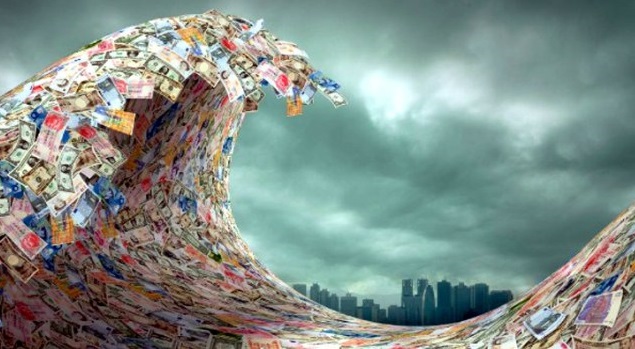Too Big to fail? JP Morgan heads the table in 2017

Banks and financial institutions of particularly intrinsic importance to the global financial ecosystem are sometimes blithely referred to as "too big to fail".
A more sober term is 'global systemically important banks', or G-SIBs for short. In the aftermath of the financial crisis, at the 2009 G20 summit, an international body called the Financial Stability Board (FSB) was set up, its aim being to monitor the global financial system and make recommendations, when it deemed appropriate. The 2017 list was published on Tuesday and it makes for interesting reading.
JPMorgan now stands alone as the world's most systemically important bank, after US rival Citigroup dropped down the latest list of so-called G-Sibs published by the Financial Stability Board.
The FSB's annual list sorts 30 of the world's biggest banking institutions by the amount of additional regulatory capital they are required to hold against risky assets by national authorities; the bigger and more complex their business, the higher the required buffer.
The 30 banks included in the list fall into various categories, or 'buckets' as they are known, with JPMorgan Chase the only bank ranked in the second most critical category (none are in the most critical category). Following in the next category are US banks Bank of America and Citigroup, German bank Deutsche Bank and British bank HSBC.
The remaining banks fall into the bottom two categories, with all of them deemed by the FSB to be institutions of systemic importance.
In last year's list, JPMorgan Chase was also at the top, ranked alongside Citigroup. There is only one new bank in the 2017 list, with Royal Bank of Canada replacing French bank Groupe BPCE. Bank of China and China Construction Bank both moved to a higher category with BNP Paribas and Credit Suisse, along with the aforementioned Citigroup, dropping to a lower category.
The list underlines the centrality of the American financial system to global economic order. Eight of the banks are American, the highest representation of any one country. The rest are from China, the UK (four each), Japan, France (three each), Switzerland (two), Canada, Germany, Italy, the Netherlands, Spain and Sweden (one each).
Credit Suisse, which has undergone heavy restructuring under its chief executive Tidjane Thiam in a bid to move away from riskier investment banking businesses, was moved down into bucket one, which carries an extra buffer of 1%.
The FSB, which is chaired by Bank of England Governor Mark Carney, was set up as part of a G20 strategy aimed at securing the global financial system and avoiding a repeat of the financial crisis of a decade ago.
The annual G-SIB list can be interpreted in that context, with its structure and criteria based on "an integrated set of policy measures to address the systemic and moral hazard risks associated with systemically important financial institutions," as the FSB itself puts it.

